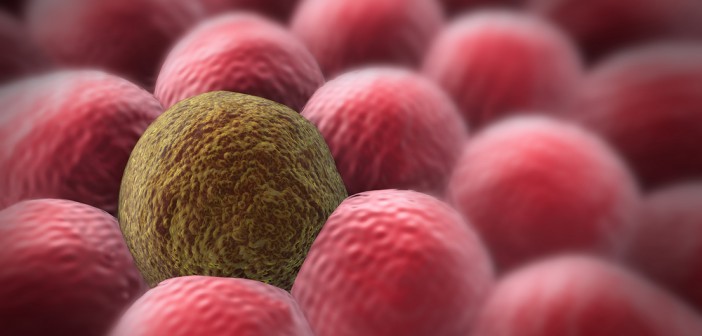CANCER METABOLISM AND SIGNALING NETWORKS PROGRAM
New research from SBP and UC San Diego shows that high levels of the protein p62 in human liver samples are strongly associated with cancer recurrence and reduced patient survival. p62 was also found to be required for liver cancer to form in mice.
This discovery suggests that p62 could be used as a prognostic marker and potential therapeutic target for liver cancer.
Jorge Moscat, PhD, deputy director of SBP’s NCI-designated Cancer Center, was co-senior author on the study, published in Cancer Cell, to which Maria Diaz-Meco, PhD, also contributed. Moscat and Diaz-Meco were the first to discover p62, and have since led efforts to fully understand its role in cancer initiation and progression.
“By defining factors that allow liver cells to progress from pre-cancer to cancer, we were able to find one — p62 — that we can also use to predict a liver cancer patient’s outcome following full removal of a previous liver tumor,” said co-senior author Michael Karin, PhD, distinguished professor of Pharmacology and Pathology at UC San Diego School of Medicine.
The protein p62 normally acts as the cell’s trash collector, delivering specially tagged proteins to the cell’s degradation machinery. p62 also acts as a communication hub — it binds many different proteins to regulate important cellular functions like growth and survival. Amounts of p62 are known to be elevated in many different cancers, including liver, and in pre-cancerous liver diseases.
In this study, Karin’s team looked at non-cancerous liver samples collected from people who had undergone previous treatment to completely destroy their liver cancers. The researchers found that people with higher levels of p62-positive aggregates were significantly more likely to see their cancer return and less likely to survive cancer-free than people with low or no p62.
Work in mice led Karin and team to attribute protein p62’s pro-cancer effect to its ability to activate other proteins (NRF2, C1 and c-Myc) and genes that help stressed cells survive. This extended lifespan allows liver cells to accumulate cancer-causing mutations and ultimately form malignant tumors. The researchers found that p62 alone was enough to induce liver cancer in several mouse models of the disease. Liver tumors couldn’t form without the protein.
The specific type of liver cancer analyzed in this study was hepatocellular carcinoma, the most common form of adult liver cancer. While years of further testing are necessary before doctors might be able to use p62 information to make treatment decisions, new liver cancer detection and prevention methods are sorely needed. Liver cancer doesn’t usually cause symptoms until later stages, contributing to its low survival rate. According to the American Cancer Society, just 17 percent of patients with all types of liver and bile duct cancer survive five years cancer-free.
“Our new study illustrates that p62 is necessary and sufficient to induce liver cancer in mice, and that its high expression level in liver tissue surrounding a tumor predicts recurrence of the disease after tumors are removed,” said Moscat. “We believe that small molecules that interfere with p62 may be useful for preventing the progression of chronic liver disease to liver cancer.
The paper is available online here.
Moscat was interviewed at AACR about the importance of p62 in cancer. The video is available online at ecancer.tv.
